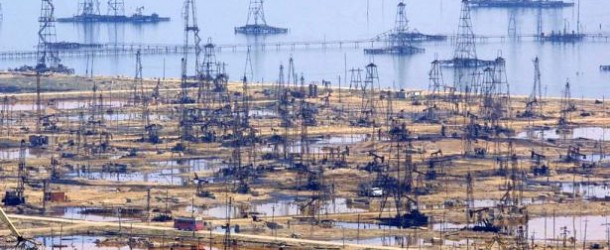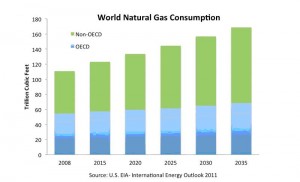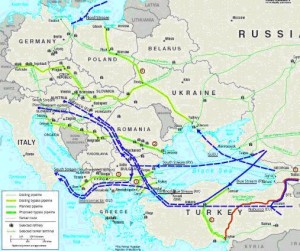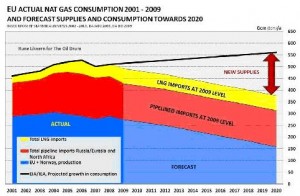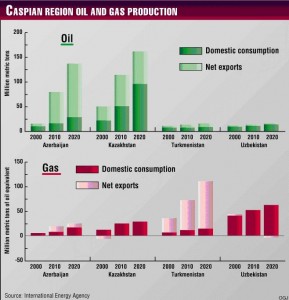In the aftermath of collapse of the Soviet Union in 1991, several arguments have been put forward in order to define the new system of the world. One of these arguments has been the New World Order. Prior to give the definition and fundamental features of New World Order, the term “Geopolitics” will be defined for better comprehending this new system.
Geopolitics is a discipline that examines the humanity within the context of its mutual relationship with the location factor. It also examines the current and future relationship between the power and goal within the political level by taking the political geography as the basis. Geopolitics searches the ways of manners at the power and the political levels within the worldwide, region wide and country wide by examining the World geography, geographic structure and the universal values.[1] Moreover, it determines the targets, the conditions and stages to reach these goals. By analyzing the data acquired from geography, history, technology and politics within the context of Zeitgeist, it is the art and science which determines the national policies and the execution of international political activities for providing the development and use of national power elements in a most efficient way.
Geopolitical factors can be grouped as “changing and unchanging factors”. The unchanging factors are; the borders of a country or the region, her location on the world geography, its territories as well as geographic character or in other words, its situation as being a state of island, Rimland, continent or in-continent. The changing factors are; the political, economic, socio-cultural, military, scientific and technological structure of the country and the time. Even if the geographical positions of the states are being stable, significant alterations can be experienced within the political borders of the regions and states during the periods that the important changes are seen. This altering condition affects the geopolitical considerations and it paves the way in the alterations of countries’ foreign policies.
The New World Order is a concept used for the political atmosphere emerging after the Cold War. From realist perspective, in the gap emerging after the disappearance of blocks, it represents a new international atmosphere based on a competition. From liberal perspective, with the dissolution of the Soviet Union, values and interests have declared their supremacy and the concepts namely peace, democracy and human rights have come into forefront.[2] But when the New World Order is discussed, the first thing that comes to people’ mind is a new order led by the United States. Some evaluate this role as leadership; some define this role as unipolarity. On the other hand, some people advocate that the White House leads the globalization by spreading her influence and values to the whole world. Furthermore, all actors have comprehended and accepted the fact that this order is created and imposed by the United States. But in a conflicting way, the consumption madness, started by the Western economic model and led by Washington, has shown the weak sides of the system and has shaken the system.
Furthermore, the consumption in the world has augmented the demand and in connection with this, the production has increased. The production has resulted in more energy consumption (namely in China) and the consumption has caused the rising of the countries possessing energy resources as well as the strengthening of some countries namely Russian Federation. Therefore, these rising states – though it seems unlikely that there emerges a power just like the USSR which will challenge the United States in the medium term – have started to open the new world order led by Washington into discussion.
Within that milieu, one of the most important subjects that come into the world agenda in the 21st century is the safe and unhindered transportation of energy resources namely oil and natural gas from the producer countries to the consumer countries. Energy demanding countries are encountering not only to increasing oil prices but also to environmental pressures and supply security concerns. On the contrary, energy producers exploit from relatively high prices and search for ways to strengthen power by using their natural resources. The interaction among the state and non-state actors occur within a transition period in which certain energy producers (mainly Russia, Iran and Venezuela) and highly energy demanding countries given to their economic growth (mainly China and India) search for a multi-centered global system by confronting the U.S. interests. Therefore, it is indispensable to define how the new energy order, which require new energy order politics, is coming into agenda. Transition to new energy order can be defined in terms of:
1. The lack of hegemonic stability.
2. The rise of new global actors (such as Russia, China and India) confronting the Euro-Atlantic interests.
3. The rise of new regional actors (such as Iran and Turkey) altering security paradigms.
4. Many state and non-state actors which are coming to be more effective in geopolitics of energy.
5. The sharp upturn of environment as a new geopolitical factor.
6. The exploration of actors for energy mix composed of natural gas, oil, coal, renewable sources and nuclear.
7. Ongoing implication of oil and gas in spatial geopolitics which profoundly marks the positions and strategies of actors.
Neo-politics, defining the supremacy of energy while forming domestic and foreign policies, denotes to initiatives to affect the New Energy Order as acknowledged by the associated actors:
1. Domestically; energy efficiency, environmental concerns and cost affectivity require desirable configurations of energy mix. State and non-state actor activities augment investments in renewable and nuclear resources whereby fossil fuels keep their significances.
2. Internationally; the states give a paramount importance to energy while constituting their foreign policies. They ponder geopolitical spatiality of fossil fuels, environmental limitations and regulations, effects of renewable energy on development and food security (e.g. bio-fuels) as well as the results that may emerge from the envisioned increase of nuclear power plants.
Actors, which practice neo-political strategies, target to reinforce regional and global power, endure supply security while capitalizing on the energy cost-profit relationship regarding environmental restraints. Within this framework, these actors lay out several strategies toward that goal. One of the most significant strategies from this perspective is enhancing multidimensional relations with countries owning enormous hydrocarbon resources. Another basic strategy is to establish amicable relations with the transit countries from which the transportation of these resources via pipelines occurs.
The increasing need for energy supply and resource diversity within the global context form the basis of Washington’s energy policy. In the current framework, Washington closely collaborates with the world’s most central hydrocarbon producing countries in order to ensure its energy supply security and the sustainability of the global economic system. When Washington talks over new natural gas production in Azerbaijan or Turkmenistan, this is not for the sake of the United States, but it is central in that it would contribute to international gas supply, augmenting global energy security. The U.S. administration also wishes to underwrite Europe in its search for energy security. Washington also aspires to assist Caucasus and Central Asian producer countries in finding new routes to market for their oil and natural gas as well.
Zbigniew Brzezinski underscores that in the aftermath of the Soviet Union’s dissolution, and beyond the boundaries of the former Ottoman Empire, the newly independent Central Asia, largely Turkic in terms of cultural heritage, now does beckon.[3] A more active commercial and cultural outreach of Ankara is a favorable bolstering for the modernization, secularization, and eventual democratization of this energy-rich but geopolitically emergent region. It is also central to address that since Moscow searches for monopolizing direct foreign access to Central Asian energy exports, Ankara’s augmenting regional role can make – in joint cooperation with Baku and Tblisi – Europe’s unhindered access across the Caspian Sea to Central Asia’s hydrocarbon resources easier.
Source: http://www.silkroadstudies.org/new/inside/turkey/100118Pipelines.jpg
Turkey aims to contribute fruitfully to the world’s energy security and more specifically performs a significant regional role in that regard Turkey is capable of being more than a bridge: it does have the potential to be a regional center between Asia and Europe.[4] Its geographic location permits for the most cost effective means of transportation. Turkey’s geopolitical condition ensures access to diverse energy resources. Turkey has developed policies based on a political conceptual framework, where its sui generis location puts Ankara at the centre and will make its ability easier to solve regional and international energy problems. Turkey symbolizes one of the most significant energy transportation routes, carrying hydrocarbons from the Middle East and the Caspian Basin to the EU. Turkey has attested itself to be a trustable partner for various projects which have forged successfully. At the peak of Turkey’s targets in the energy sector for 2020 is to enable the Ceyhan Energy Terminal a key facility for global energy markets that can handle about 3 to 4% of the global gas supply and about 5 to 6% of the global oil supply.
Within this basis, it is momentous to note why the abundant hydrocarbon reserves of the Caspian region are so vital for the countries possessing them and for the countries deeply dependent on these resources. According to BP Statistics published in 2006, when the world consumption is taken into account, it is seen that the following resources are remained to be sufficient for the next years namely oil reserves for 40 years, natural gas reserves for 65 years, coal reserves for 216 years. The Caspian Sea is an area covering the Sea’s littoral states of Azerbaijan, Kazakhstan, and Turkmenistan, as well as parts of Russia and Iran. Uzbekistan, though not a littoral state, is the largest gas producer of the region.[5] The Caspian Sea region has turned out to be a vigorous pivotal point for untapped hydrocarbon resources from the southern portion of the former Soviet Union. Starting in May 2005, oil coming from the southern sections the southern sections of the Caspian Sea did begin pumping via a new pipeline, constructed by a BP-led consortium) to the Turkish seaport of Ceyhan. The 8-year endeavor of Western capital, technology, and diplomacy had intended to lower the dependence on Middle Eastern oil. Though oil reserve increase in the Caspian region has not been at the expected levels in the 1990s, European countries are distinctively focused on the natural gas resources that could lie under the Sea as a way to diversify their sources of gas imports.
Source: http://www.naturalgaseurope.com/images/screen%20shot%202012-04-20%20at%2011_03_45%20am.png
At this point, Moscow comes into the picture as the largest natural gas producer and exporter in the region. Turkmenistan, Azerbaijan, Kazakhstan and Uzbekistan emerge as the countries possessing significant volumes of natural gas. Although Middle East countries possess the highest hydrocarbon reserves across the world, they are not considered to be reliable energy suppliers. Such a case tops Central Asia countries and Azerbaijan located in the Caspian region in terms of ensuring world energy supply security. Therefore, a great competition is clearly seen among especially developed countries with regard to management and use of the Caspian Sea Region’s hydrocarbon resources.[6] It is estimated that the proven oil reserves in the region are in the range between 17 and 49 billion barrels, which is comparable to OPEC members Qatar on the low end, and Libya on the high end. Following these findings, major new discoveries were declared in Azerbaijan at Shah Deniz in 1999 (total reserves of approximately 15 Tcf of gas and 600 million barrels of condensate), and in Kazakhstan at Kashagan in 2000 ( recoverable reserves envisaged at 7-9 billion barrels of oil equivalent, with further potential totaling 9 to 13 billion barrels using secondary recovery techniques).
Source: http://images.pennwellnet.com/ogj/images/ogj3/9709jnca01.gif
Abundant hydrocarbon reserves are located in Azerbaijan, Kazakhstan, Turkmenistan, and Uzbekistan which are highly interdependent with each other on energy resources, transportation, infrastructure and markets. Hydrocarbon resources in the Central Asian region are positioned far from conventional markets, and the countries’ lack of direct access to the hydrocarbon transit sea lanes collectively do involve them in competition and collaboration to get the oil and gas to market. But because the Caspian Sea region’s oil-producing countries are mostly land-locked, routes to the market invariably embrace shipment through third party countries.
Russia’s approach of being monopoly on the energy supply as well as controlling the world geopolitics has safeguarded Moscow’s re-empowerment. Washington and Brussels are concerned with Kremlin’s monopolistic hegemonic influence in connection with energy security and increasing demands. Given the dependence of former Soviet Republics to Moscow on energy transfer, Kremlin is successful in controlling these countries. Russia chases after the increasing of volumes of energy resources that it gets from the regional countries as well. Moscow does not refuse increasing price policies of these states but it endeavors to overrule alternative pipelines by creating technical obstacles before these projects.
In that regard, the sui generis geographic location of Turkey, between the energy producers and consumers, is closely watched by the countries in Caucasia and Caspian regions possessing rich hydrocarbon resources. Turkey is geographically located in close proximity to the regions where more than 73% of the world’s proven oil and 72% of gas reserves exist. Other than this, Ankara can establish close historical, political, cultural and economic relations with the countries enjoying these hydrocarbon resources. Ankara’s exclusive status is increasingly taken into consideration by Brussels which highlights energy security and by Washington as well as Moscow which attach exceptional prominence to these regions within the context of their global strategies toward these regions.
Given these factors, the noteworthy operational or projected pipeline projects for the transportation of hydrocarbon resources in Caucasia and Central Asia into the international markets is an important issue for these countries. This increases the role of Turkey as an important transit country within the context of Eurasia’s energy axis and an energy hub in the region. Even though its energy resources are inadequate, Turkey acquires the hydrocarbons of the supplier countries and transports these resources to consumer countries via pipelines. By going beyond a transit country, Turkey turns out to be one of the determinant actors that play a serious role in the traffic of energy resources. By moving from this target, Turkey has been the leading country for the attainment of East-West Energy Corridor and Southern Gas Corridors, envisaged as the direct transportation route of wide Caspian Sea Basin’s hydrocarbon resources to the Western markets.
The operational BTC Crude Oil Pipeline, SCGPL, the projected Nabucco Gas Pipeline, TANAP, South Stream, Samsun-Ceyhan and Trans-Adriatic Pipeline constitute some noteworthy examples within that framework. Such kind of projects has vital implications for both strategic reasons and the provision of energy supply security. It can be concluded that the struggle over the transportation of Caucasia and Central Asia’s giant hydrocarbon resources among the regional powers and the global powers can be expected to persist in the coming years on the assumption that these resources are existent.
Sina KISACIK
[1] Atilla Sandıklı, “Jeopolitik Teoriler ve Türkiye,” in Dünya Jeopolitiğinde Türkiye, ed. Hasret Çomak, (İstanbul: Hiperlink Yayınları, 2011), pp. 345-346.
[2] Ainur Nogayeva, Orta Asya’da ABD, Rusya ve Çin: Stratejik Denge Arayışları ( Ankara: USAK Yayınları, 2011), p. 83.
[3] Zbigniew Brzezinski, Strategic Vision: America and the Crisis of Global Power, (New York: Basic Books, 2012), s. 136.
[4] Republic of Turkey Ministry of Foreign Affairs, “Turkey’s Energy Strategy”, http://www.mfa.gov.tr/turkeys-energy-strategy.en.mfa, (Accessed 23 June 2013).
[5] Vildan Serin and Havva Çaha, “The Stabilizing Role of the Caspian Sea Region on World Energy Security,” in China-India-Russia “Security and Strategic Cooperation in Asia,” ed. Engin Selçuk (İstanbul: Tasam Publications, 2012), pp. 140-142.
[6] “BP Statistical Review of World Energy June 2013,” http://www.bp.com/content/dam/bp/pdf/statistical-review/statistical_review_of_world_energy_2013.pdf, (Accessed 27 August 2013).


